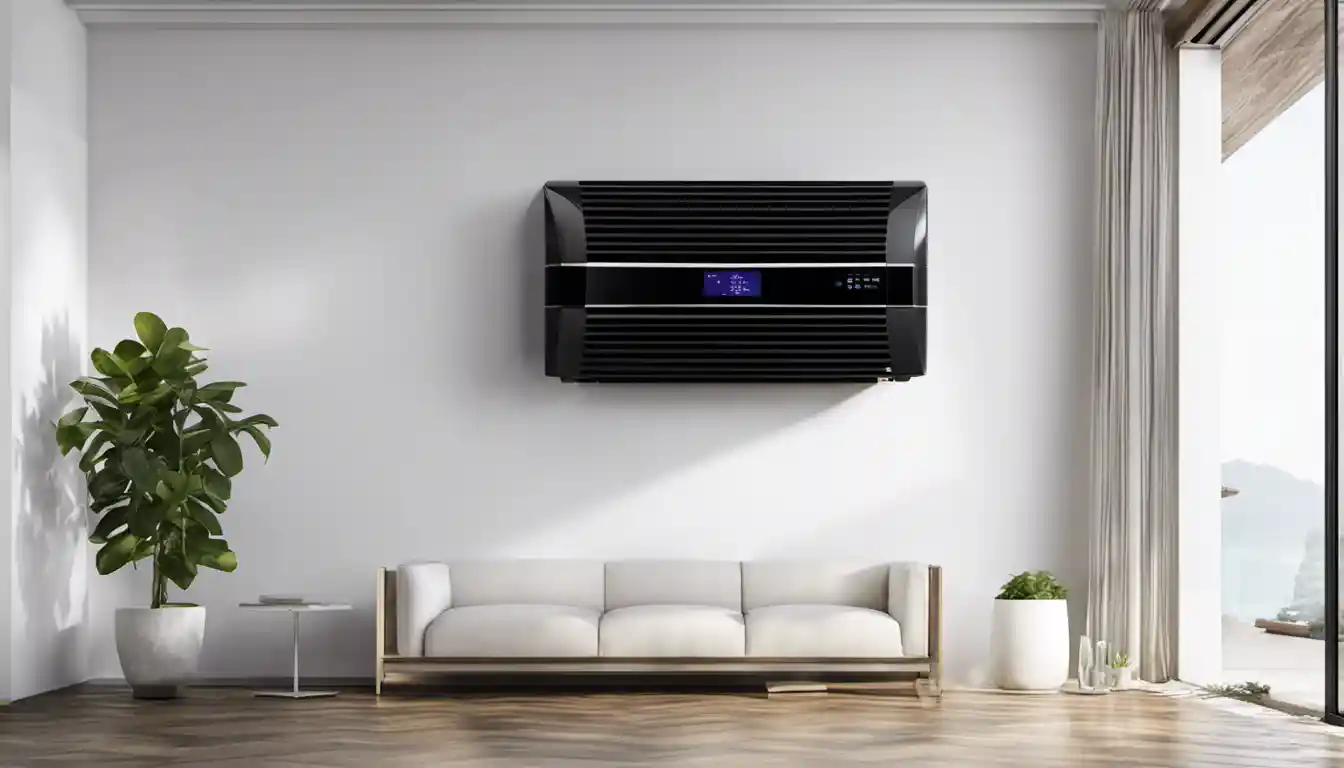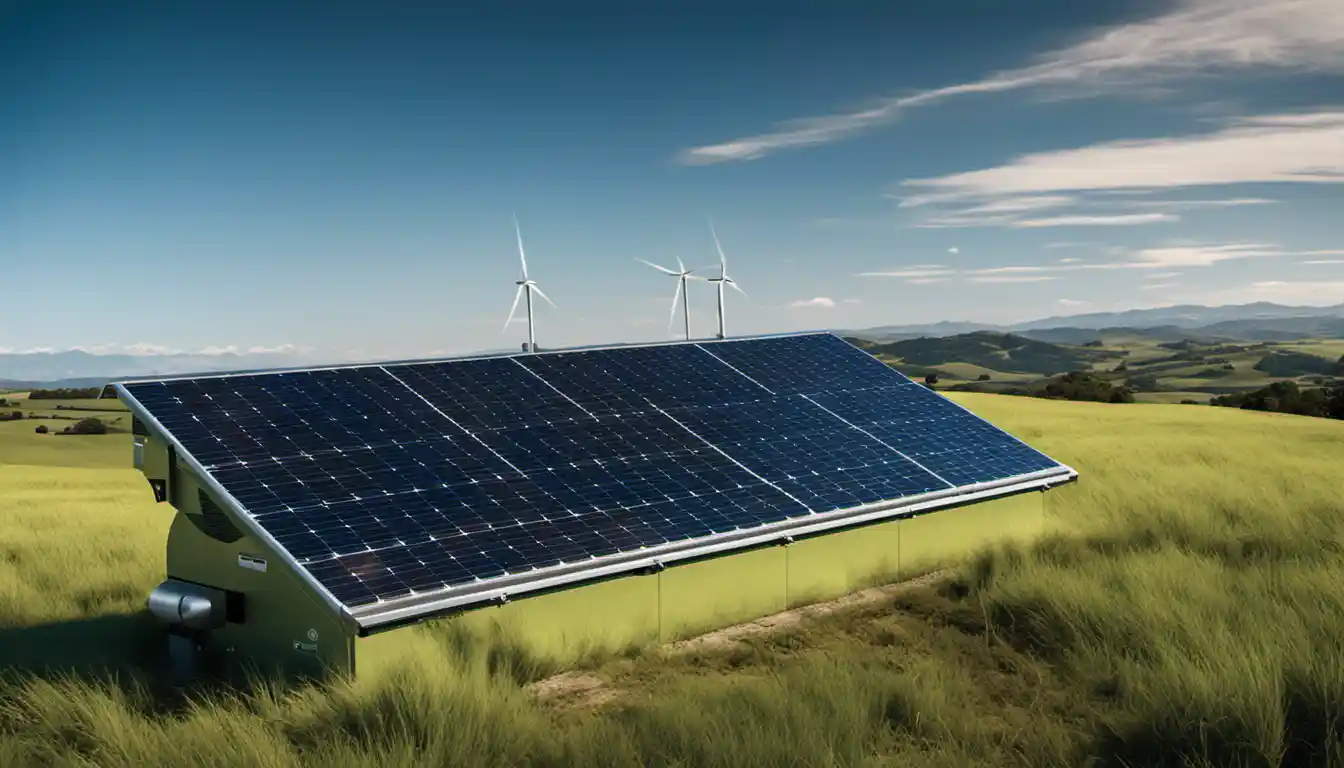Introduction to Hybrid Solar Inverters
A hybrid solar inverter, also known as a multi-mode inverter, is a type of energy system that combines the functionalities of both a grid-tied solar inverter and an off-grid solar inverter allowing the solar power to be used instantly, stored for later use in batteries, or fed back to the electric grid. Unlike standard inverters, hybrid inverters can provide power even during a grid outage. This technology makes it more efficient and versatile for solar power generation.
The Hybrid Solar Inverter: A Detailed Explanation
Before we delve any deeper, let’s ensure we’re all up to speed on what inverters are. Simplistically, an inverter is like the heart of any solar system, dictating the flow of electricity and converting it to a usable form.
Direct current (DC) generated by your solar panels isn’t immediately usable in your home. Your gadgets and appliances need alternating current (AC). Here’s where the Hybrid solar inverter steps in. It converts the DC from your solar panels into AC but with an added grade – it can store excess energy in batteries for future use. This unbridles the common limitation of other inverters that solely depend on the grid or the sun.
Meanwhile, the battery’s energy storage capability is integral to how the hybrid solar inverter works. Remember those power blackout moments when you wish you had some reserved electricity? Hybrid inverters come in handy to store excess power production during the day that you can tap into during at night or during blackouts.
Different Types of Hybrid Inverters
How do you differentiate between an Equator and a Sahara when they’re both deserts? Similarly, it’s important to understand the different types of hybrid inverters:
-
Inverter/Charger Hybrid: Combines a traditional inverter with a battery charger.
-
Inverter/Charger/Solar Charge Integrated: A whole-package hybrid inverter including a solar charge controller. Its brilliance allows you to control the entire system with one device.
-
Grid-Tie Hybrid: Tailored specifically for grid-connected solar applications. You can deliver excess power back to the grid and draw electricity when your panels are under-performing; how cool is that!
To dive deeper into these variants, check our article that fully explores types of solar inverters.
Can a Hybrid Solar Inverter Work Without a Battery?

The golden question! Can your ‘wonder-inverter’, the hybrid solar inverter, function without a battery?
Absolutely! While its signature feature lies in its ability to store energy, a battery isn’t a non-negotiable requirement. It’ll still act like a standard inverter, converting DC electricity from the solar panels to AC for immediate use. However, without a battery, you miss out on energy storage and blackout protection.
Comparing Hybrid Inverters to Other Types of Inverters
In the ring of inverters, how does the hybrid kind measure up? It’s like comparing smartphones. While all can call and text, some have advanced features like superior cameras, facial recognition, and so on. Likewise, while all inverters convert DC to AC, hybrid inverters bring additional elegant features like energy storage and blackout protection. This truly sets them apart when comparing them to standard on-grid or off-grid inverters.
Advantages and Disadvantages of Hybrid Solar Inverters
As with anything, there are pros and cons attached to hybrid solar inverters.
Pros of a Hybrid Inverter:

-
Offering Power Resiliency: They reduce your reliance on the grid by storing excess power for later use.
-
Easing Retrofitting of Battery Storage: You can add a battery later.
-
Simplifying Energy Monitoring: Many come with sophisticated monitoring software, giving you real-time insights about your energy use.
Cons of a Hybrid Inverter:
-
Challenges in Upgrading Existing Systems: Not all solar PV systems can be easily upgraded to accommodate a hybrid inverter.
-
Increased Equipment Expenses: They are more costly upfront compared to standard inverters.
-
Potential Limits on Future Design Flexibility: They might limit certain system design capabilities.
Should You Invest in a Hybrid Solar Inverter?
Whether a hybrid solar inverter is worth investing in or not depends on individual needs. For those who experience regular power outages or want more energy independence, I’d say a hybrid solar inverter could be a fantastic option. Do consider your budget, energy needs, and local policies before taking the plunge.
How a Hybrid Grid-Tied Inverter Can Help You Go Off-Grid

A hybrid grid-tied inverter lets you taste the best of both worlds. It can generate electricity for use, store excess power, and feed surplus back to the grid. With battery backup, you can even go off-grid temporarily during power outages. Fulfilling, isn’t it?
Cost Implications of a Hybrid Inverter
No sugar-coating here; hybrid inverters come with a steeper price tag. However, their features like energy storage, power outage protection, and increased energy autonomy somewhat justify the cost. Plus, with the decreasing prices of solar batteries, a comprehensive hybrid inverter system is becoming more affordable.
Key Takeaways: What to Remember about Hybrid Solar Inverters
A hybrid solar inverter is a fantastic invention, combining the goodness of standard inverters with the sophistication of power storage. But remember, while it shines with its benefits, it’s essential to evaluate your specific energy needs and budget before investing in it.
Answering “what is a hybrid solar inverter” isn’t as simple as it might appear. But now, with this guide, you’re well equipped to navigate the world of solar energy and make the best decision for your energy needs. Journey on my good friend and find the best solar solution for you!



